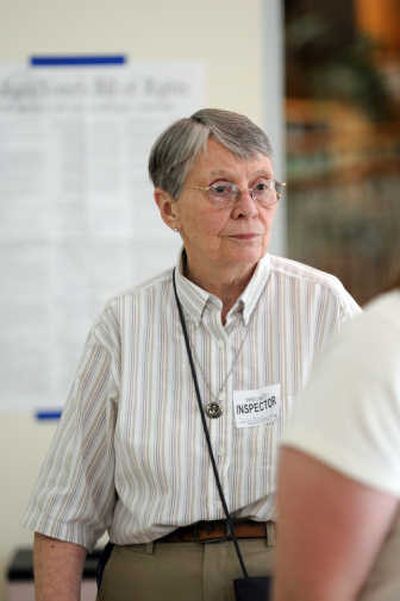Nuns turned away at Indiana poll

About 12 Indiana nuns were turned away Tuesday from a polling place by a fellow sister because they didn’t have state or federal identification bearing a photograph.
Sister Julie McGuire said she was forced to turn away her fellow members of Saint Mary’s Convent in South Bend, across the street from the University of Notre Dame, because they had been told earlier that they would need such an ID to vote.
The nuns, all in their 80s or 90s, didn’t get IDs but came to the precinct anyway. Some showed up with outdated passports. None of them drives.
The convent will make “a very concerted effort” to get proper identification for the nuns in time for the general election, McGuire said. “We’re going to take from now until November to get them out and get this done.”
Elsewhere across the pivotal state, voting appeared to run smoothly, despite the fears of some elections experts that the Supreme Court’s recent refusal to strike down Indiana’s controversial photo ID law could cause confusion at the polls.
The ID law is the strictest in the country. The Republican-led effort was designed to combat ballot fraud, said supporters, who have acknowledged that no case involving someone impersonating a voter at the polls has ever been prosecuted in Indiana.
The state’s American Civil Liberties Union sued, calling the law a poll tax that disproportionately affected minorities and elderly voters, those most likely to lack such identification. The Supreme Court ruled 6 to 3 on April 28 that the law did not violate the Constitution.
In a primary expected to draw record numbers, a voter hot line set up by the secretary of state’s office mostly received calls concerning precinct locations, spokeswoman Bethany Derringer said.
But voting rights advocates who established a separate hot line reported receiving several calls from would-be voters who were turned away at precincts because they lacked state or federal identification bearing a photograph.
One newly married woman said she was told she couldn’t vote because her driver’s license name didn’t match the one on her voter registration record, said Myrna Perez of the Brennan Center Justice at New York University’s law school, coordinator of the (866) OUR-VOTE hot line. .
“These laws are confusing. People don’t know how they’re supposed to be applied,” she said.